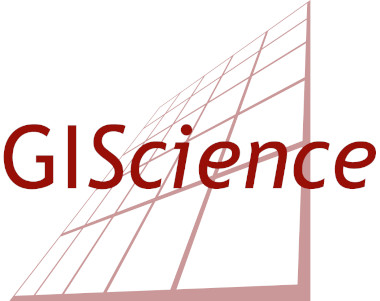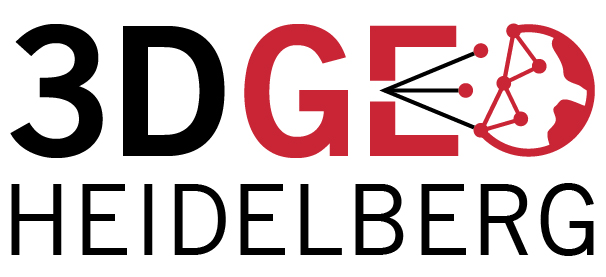Month: June 2018
-
Talk on methods and applications for large geospatial point clouds
On Wednesday, Roderik Lindenbergh from TU Delft (NL) gave an exciting talk on robust geometry extraction in large spatial point clouds in the frame of the IWR colloquium at the Interdisciplinary Center for Scientific Computing. With focus on robust and novel methods of geoinformation extraction from these special datasets, the audience was taken on a…
-
Introducing the Critical Numbers Tool for the HOT Tasking Manager
We would like to introduce our new little analysis tool Critical Numbers for projects of the HOT Tasking Manager. (You can find this blogpost and the code for the tool at our GitHub repository.) The Critical Numbers webapp is an easy way to visualize how much of a project is mapped and validated – results…
-
Meet us at AGIT30
Meet us in Salzburg at the AGIT30 conference and get to know the ohsome platform, that has been introduced recently! Our colleague Fabian Kowatsch will give a talk on Thursday, July 5th: M. Auer, M. Eckle, S. Fendrich, F. Kowatsch, L. Loos, S. Marx, M. Raifert, M. Schott, R. Troilo, A. Zipf. Ohsome – eine…
-
IWR Colloquium on Robust Geometry Extraction in Large Spatial Point Clouds (Prof. Roderik Lindenbergh)
Everyone interested is cordially invited to the talk of Prof. Roderik Lindenbergh (TU Delft, NL) on Robust geometry extraction in large spatial point clouds in the frame of the IWR Colloquium at the Interdisciplinary Center for Scientific Computing. When: Wednesday, 27th June 2018, 14:15 Where: Conference Room (5th Floor), Mathematikon, INF 205 Before the talk,…
-
Disastermappers Workshop: Mobile Data Collection
Dear Students, Dear Colleagues, it’s time for another disastermappers workshop. And since the weather is so nice, we will go outside and learn something about mobile data collection! 🙂 When? 27.06.2018, 4 pm – 7 pm Where? Geographisches Institut, Berliner Straße 48 Data Collection in the field has always been important geographic information and today…
-
GIScience Group Successful at the AGILE
The GIScience group attended the AGILE 2018 conference to present about a diversity of topics. More participants than ever have attended the conference in Lund, Sweden (12–15 June 2018). They discussed scientific topics related to the general theme of the conference, Geospatial Technologies for All. The following short papers have been presented and been published…
-
Cutting-edge 4D LiDAR research in local newspaper
This morning, the Rhein-Neckar-Zeitung (RNZ) published an article (in German) about our research on 4D LiDAR for snow cover monitoring. The angle for the article by Doris Burger is the Environmental Research Station Schneefernerhaus near the summit of the Zugspitze, where members of the 3DGeo recently acquired a highly temporal 3D time series dataset of…
-
Colloquium on Classification of 3D Point Clouds using Deep Neural Networks
We cordially invite everybody interested to our next open GIScience colloquium talk The speaker is Lukas Winiwarter TU Wien, Department of Geodesy and Geoinformation, Research Group Photogrammetry When: Monday 18.06.2018, 2:15 pm Where: INF 348, room 015 (Institute of Geography, Heidelberg University) Classification of 3D Point Clouds using Deep Neural Networks Per-point classification (semantic labeling) is an…
-
Wikimedia and MSF talks @Disaster 2.0 seminar- Latest theory and practice in disaster management
How are Wikipedia/Wikimedia volunteers supporting disaster management? What role does their engagement all around open source and open data play? What are the latest developments and innovations in humanitarian contexts and how are they defined and addressed? These questions were discussed in the first block of the Disaster 2.0 seminar last week. Daniel Mietchen, Biophysicist…
-
HeiGIT/ disastermappers visit at MSF Czech Republic
HeiGIT/GIScience and disastermappers heidelberg have been in contact and collaborating with MSF CZ over the last years already and have been supporting their work through joined Mapathons as well as MapSwipe Mapathon support. Last week members of HeiGIT/GIScience and disastermappers heidelberg visited Prague to exchange ideas and experiences and discuss potential ways to take this…
-
Today VGI-ALIVE Workshop at AGILE 2018 Lund, Sweden
If you are in Lund, Sweden today you might consider joining our VGI-ALIVE Workshop at AGILE Conference 2018. The latest programme can be found here. It includes keynotes by Andrea Ballatore and Stefano Dea Sabata and a range of interesting contributions, including Enhancing Crowdsourced Classification on Human Settlements Utilizing Logistic Regression Aggregation and Intrinsic Context…


